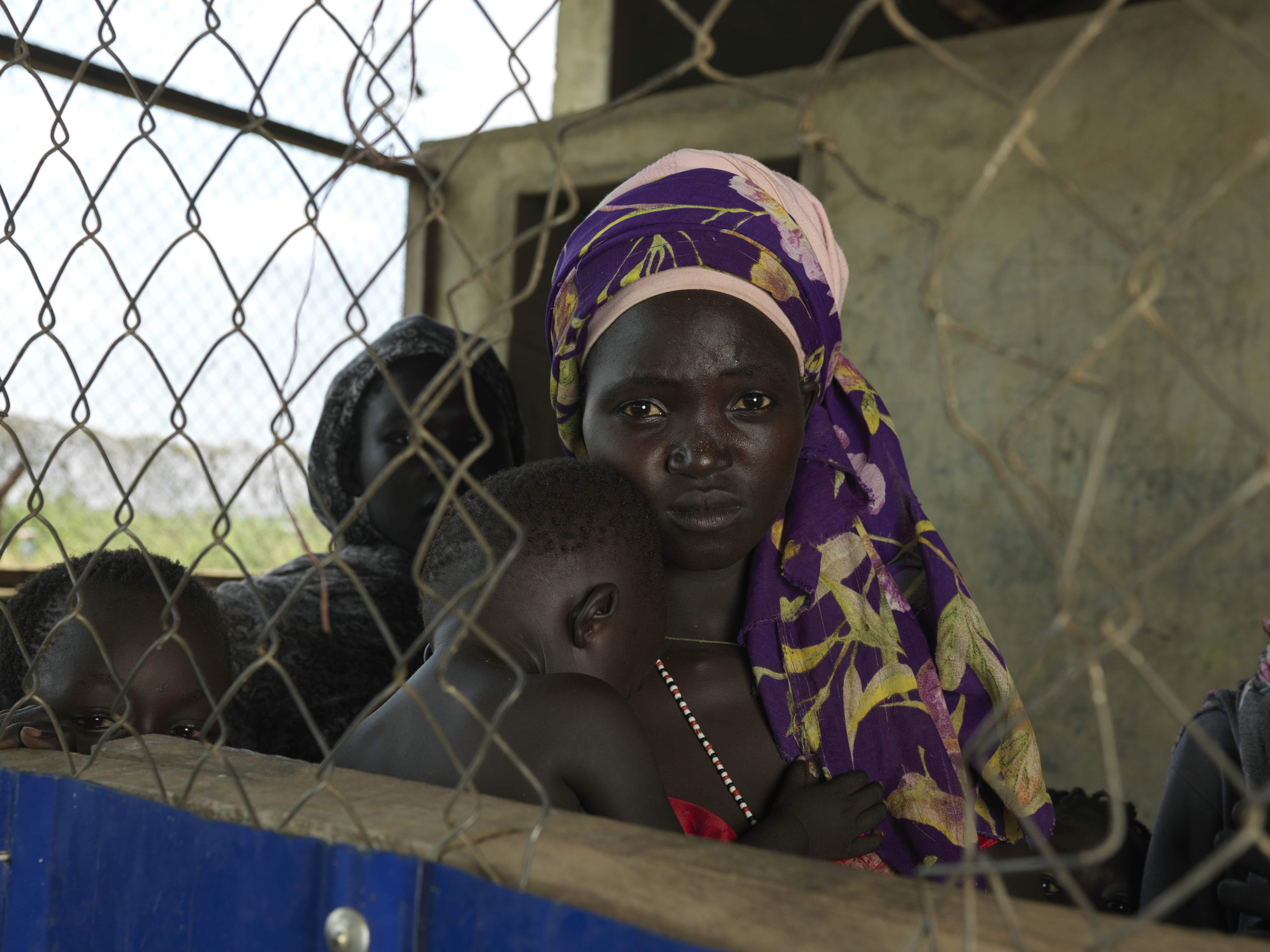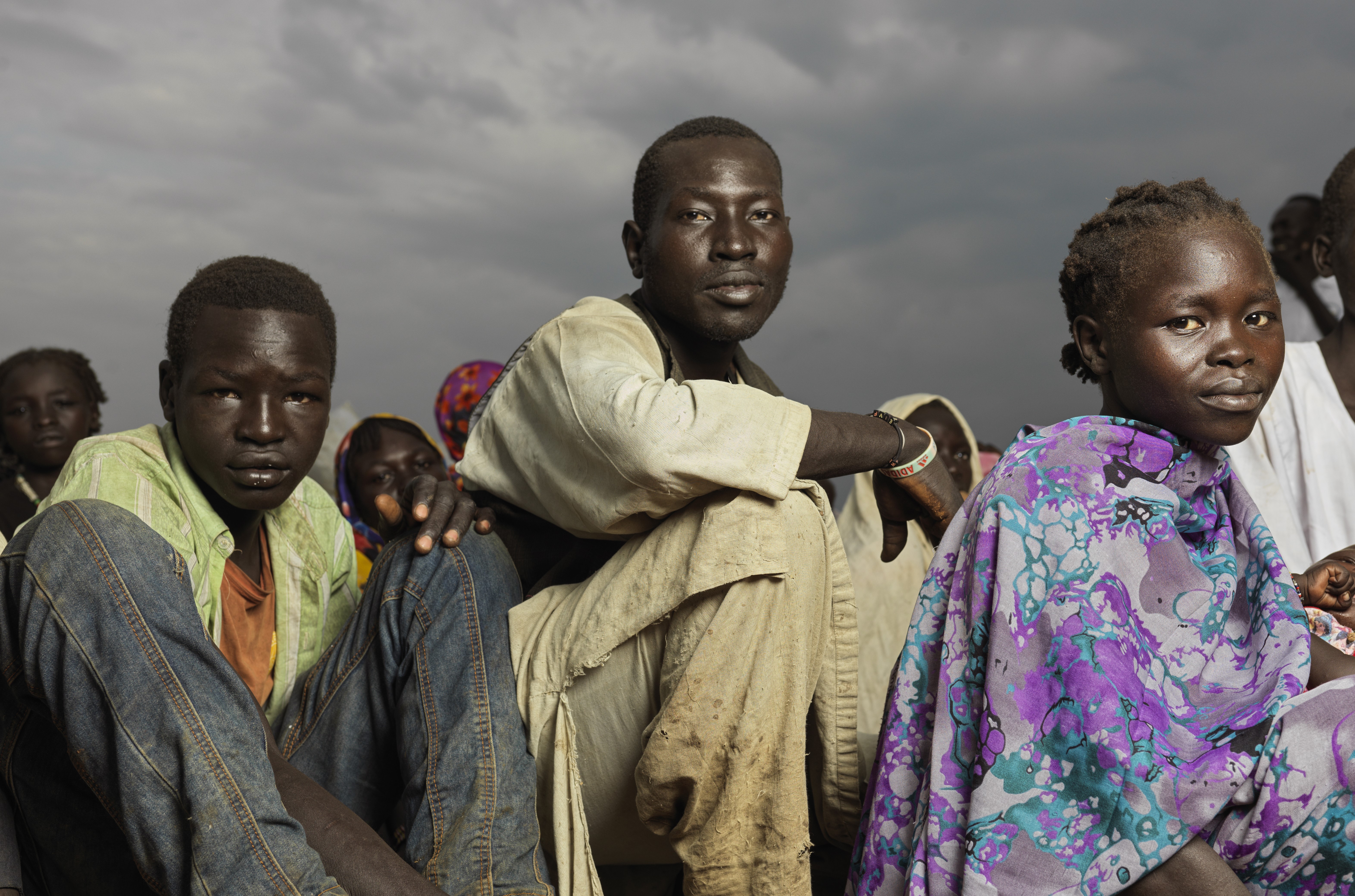With every week that passes, thousands of families are still being forced to uproot and flee. So far, more than 8 million people, half of them children, have been displaced within Sudan and to neighboring countries. As we enter the lean season from April to July, concerns mount over what could become the world’s worst hunger crisis.
In North Darfur, one of the most severely affected regions, Relief International remains one of the few organizations operating on the ground. The influx of refugees into the area has surpassed 530,000, straining the availability of life-saving supplies in camps at displacement points.
“Our priority is keeping people alive. We are providing treatment for severe malnutrition as well as trauma care, medicine, vaccines and mental health support. Of course, people still need services like antenatal and postnatal care too. Our facilities are being affected by the conflict with shrapnel piercing the walls and ceilings, but we are doing everything we can to continue providing life-saving healthcare,” says Mark Atterton, Regional Director at Relief International.
Hawa, a 35-year-old mother, says she feels traumatized by the conflict. When Hawa went into labour with her baby, there were fuel shortages in her village. Her husband searched for transportation for five hours and finally found a cart which they used to make the long journey to the hospital in El Fasher. After a Relief International midwife examined Hawa, her baby was delivered safely.
“I was so relieved. My life was saved,” Hawa says.
Relief International has set up stabilization centers in ZamZam, Almalha, and El-Fasher in North Darfur to treat cases of severe malnutrition. Health worker Ahlam recalls helping a mother who had fled violence in West Darfur. “Due to the trauma she had experienced, she was unable to breastfeed her malnourished nine-month-old baby.” Through Relief International’s intervention, the mother accessed nutritional support.
We operate over 40 health facilities across Sudan, providing over 840,000 health, nutrition and hygiene services from the beginning of the conflict to December 2023.
Beyond Sudan’s borders, the crisis reverberates across the region, with over 1.7 million people seeking refuge in neighboring countries, primarily South Sudan and Chad. Many have travelled for days on foot without enough food and water, and with only the belongings they can carry. The influx of arrivals strains already fragile systems, with transit centers overwhelmed and medical needs soaring.
The transit centers in South Sudan’s Renk are only intended to host up to approximately 10,000 people, but over 57,000 are currently sheltering there. Our staff are conducting approximately 250 consultations every day.
“The prevalence of malaria is very high. More than six tons of anti-malaria medicine is being used every three month,” shares Relief International Project Manager Dr Alex Mawa.
From Renk, refugees are making the 9 -10 hour journey to Maban in the country’s Upper Nile State where there are four refugee camps – Doro, Yusuf Batil, Kaya and Gendrassa. Relief International is the only organization providing health support in the camps, but there is not enough staff, medicine or supplies to cope with the surge of people arriving.
“We cannot turn a blind eye to the situation in Sudan any longer," says Kashif Shafique, Country Director at Relief International.
“One year since the conflict erupted, the humanitarian crisis is accelerating with persisting violence, mass displacement and now the risk of famine. Currently the amount of medical and nutritional supplies is not meeting the huge needs on the ground. More funding is urgently required to scale-up life-saving aid and extend a lifeline to the forgotten communities living in this nightmare,” Kashif continues.
As we continue our vital work, providing critical support to communities ravaged by conflict, the call for solidarity and support grows louder. With persistent violence, mass displacement, and the looming threat of famine, the time to act is now.

Support our critical work.
Help us continue to provide relief to those trapped in this nightmare.
